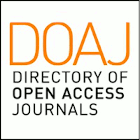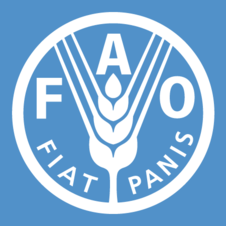FACTORES DIETÉTICOS Y NUTRICIONALES EN LA PREVENCIÓN DE LA ENFERMEDAD DE ALZHEIMER
Resumen
La prevalencia de la demencia incluyendo la enfermedad de Alzheimer ha aumentado de forma alarmante en los últimos años. La enfermedad de Alzheimer es uno de los problemas sociosanitarios más importantes actualmente y una de las principales causas de discapacidad y dependencia entre las personas mayores. Las causas que la originan no han sido del todo elucidadas. Algunos factores de riesgo que se asocian con la enfermedad de Alzheimer son factores genéticos, eventos vasculares, historia de traumatismo en la cabeza, estrés oxidativo, disminución de la producción de óxido nítrico a nivel endotelial, hiperhomocisteinemia, hipertensión, resistencia a la insulina, diabetes, hipercolesterolemia, obesidad, alteraciones hormonales, factores del estilo de vida y factores psicológicos. Dentro de los factores del estilo de vida, la alimentación tiene un papel esencial en la prevención y desarrollo de la enfermedad. El consumo de frutas, verduras, pescados, lácteos y derivados, frutos secos, vino tinto, aceite de oliva y té verde en cantidades adecuadas y la ingesta de ácidos grasos omega 3, folatos, vitamina A, E, C, D, B6 y B12, colina, magnesio y selenio pudieran ayudar a frenar el deterioro cognitivo y disminuir el riesgo de desarrollar la enfermedad. De forma contraria, el exceso de la ingesta de energía, grasas saturadas y trans parece estar relacionado con el aumento del riesgo de desarrollar la enfermedad. Pese a toda la evidencia científica disponible, se requiere realizar más estudios sobre la relación entre los factores dietéticos y nutricionales y la prevención de la enfermedad de Alzheimer.
ABSTRACT
The prevalence of dementia including Alzheimer's disease has increased dramatically in recent years. Currently, Alzheimer's disease is one of the most important social and health problems and one of the leading causes of disability and dependence among the elderly. The causes of the disease have not been fully elucidated. Some risk factors have been associated with Alzheimer's disease such as genetic factors, vascular events, history of head trauma, oxidative stress, the decrease production of nitric oxide in the endothelium, hyperhomocysteinemia, hypertension, insulin resistance, diabetes, hypercholesterolemia, obesity, hormonal disorders, lifestyle and psychological factors. Among the lifestyle factors, diet plays an essential role in the prevention and development of the disease. Consumption of adequate amounts of fruits, vegetables, fish, dairy products, nuts, red wine, olive oil and green tea, and the intake of omega 3 fatty acids, folate, vitamin A, E, C, D, B6 and B12, choline, magnesium and selenium may help curb the cognitive decline and reduce the risk of developing the disease. Conversely, excessive intake of energy, saturated and trans fats could increase the risk of developing the disease. In spite of all the available scientific evidence it requires further studies on the relationship between dietary and nutritional factors and the prevention of Alzheimer's disease.
Palabras claves: alimentación, nutrición, enfermedad de Alzheimer, food, nutrition, Alzheimer's disease
Descargas
Descargas
Publicado
Cómo citar
Número
Sección
Licencia
Derechos de autor 2016 Liliana Guadalupe1 González Rodríguez, Carolina Palmeros Exsome, Maria Teresa González Martínez, Miriam Gutiérrez López

Esta obra está bajo una licencia internacional Creative Commons Atribución 4.0.
Los derechos del trabajo pertenecen al autor o autores, sin embargo, al enviarlo a publicación en la Revista Salud Pública y Nutrición de la Facultad de Salud Pública y Nutrición de la Universidad Autónoma de Nuevo León, le otorgan el derecho para su primera publicación en medio electrónico, y posiblemente, en medio impreso a la Revista Salud Pública y Nutrición. La licencia que se utiliza es la de atribución de Creative Commons , que permite a terceros utilizar lo publicado siempre que se mencione la autoría del trabajo y a la primera publicación que es en la Revista Salud Pública y Nutrición. Asimismo, el o los autores tendrán en cuenta que no estará permitido enviar la publicación a ninguna otra revista, sin importar el formato. Los autores estarán en posibilidad de realizar otros acuerdos contractuales independientes y adicionales para la distribución no exclusiva de la versión del artículo publicado en la Revista Salud Pública y Nutrición (p. ej., repositorio institucional o publicación en un libro) siempre que indiquen claramente que el trabajo se publicó por primera vez en la Revista Salud Pública, Revista de la Facultad de Salud Pública y Nutrición de la Universidad Autónoma de Nuevo León.










